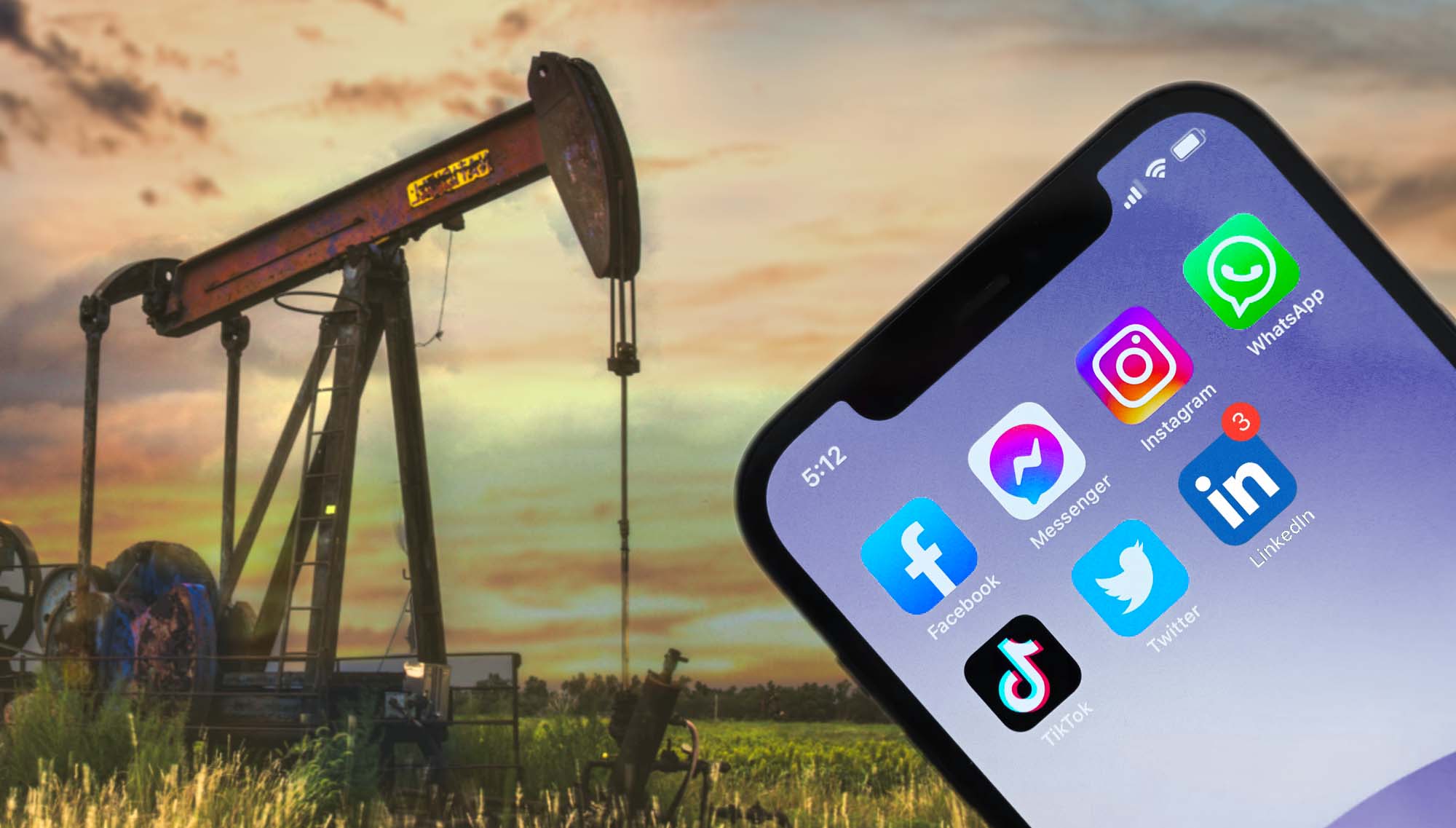We know we don’t have to convince you that your buyers are already online.
In fact, you’ve likely already read all the research that tells you that B2B buyers frequent a vendor’s website as a primary means of research before reaching out to them. You already know that word-of-mouth marketing is no longer enough in the oil and gas industry.
If you want to catch your prospect’s attention early on in the game and beat your competitors in the process, then you know you have to build an online presence.
But the big question is: how do you build a business website for the oil and gas industry that does more than just look pretty?
This industry isn’t like retail or healthcare or technology or hospitality. It’s an industry that is founded on handshakes and trust that goes back decades. The oil and gas industry is about relationships before anything else, so how can you translate that into the online world?
You’ve not only got to build a business website, but you’ve got to build one that connects to your target audience and makes them want to take action right away. Otherwise, it may as well just be wallpaper.
In this article, we’re going to go over the main elements to consider when building a website for your oil and gas business. We will link to additional resources for each topic so you can go deeper and get more nitty gritty details.
Evaluate your time and expertise
Many oil and gas companies have embarked on creating their own websites. They develop an oil and gas marketing strategy that is focused on digital transformation, and get their internal web guy to throw up a couple of pages at their domain name.
If you’re thinking about creating your own business website for the oil and gas industry, it’s important to consider whether you’re the right person for the job. Of course, you know your company best — there is no doubt about that.
However, is your time best spent making a website, writing copy, and fiddling with design, or is it best spent building relationships with your customers?
Be sure to evaluate your own expertise and experience — just like you would anyone you hire. Consider if you have the knowledge to take your company through the digital transformation in the oil and gas industry, or if your role should be more focused on running your company. There is no right or wrong answer here — it all depends on you and the goals you want to achieve.
Research your audience
One of the most important aspects of building a business website for the oil and gas industry is to understand who you are building it for. Consider your customer base and conduct research in 3 key areas:
- Demographics: Their age, gender, job title, education, salary, and location are key elements you need to know.
- Psychographics: What are their interests, values, and activities? What do they care about and deem important?
- Behavioral: How do they interact with businesses? How loyal are they? How ready are they to make a purchase?

Knowing this information will help you determine what your website should look like.
Here’s an example of knowing your audience
If you know your prospects need to see a lot of social proof before taking the next step, then you should add case studies, testimonials, and client logos on your website to help prospects understand all the success you’ve had. If your prospects come to your website ready to book an appointment, then you have to ensure your booking process is quick, easy, and streamlined.
Create engaging content for people and search engines
When it comes to your oil and gas marketing website, content is a key element you do not want to overlook. Your content is so much more than just the words on the website — it’s a marketing tool that engages your prospects and converts them to the next action they need to take.
Imagine going to a website and being so bored by the content that you immediately exit the site. Or worse, imagine seeing so many typos and inaccuracies that you know you can never trust that company.
Your content shows off your credibility, expertise, professionalism, and experience. It is how you tell your prospects, “We’re really good at what we do, and we can help you reach your goals!”
Your oil and gas digital marketing content should:
- Speak directly to your prospects’ challenges, fears, and obstacles
- Show them you are the best solution for meeting their goals
- Present your unique value proposition
- Use a consistent voice and tone
- Appeal to both human and search engine readers
That’s right — you can’t only write for people — you have to write for Google too. In addition to ensuring your content is engaging and connecting with your prospects, you have to use the right keywords your audience is searching for online so that Google sends them to your website as a top search result.
Learn more about our oil and gas copywriting services.

Build an intuitive design experience
When it comes to website design and user experience, you have to think about what your prospect wants to see constantly. How can you guide them through the different areas of your website in a way that is appealing to them?
Your digital transformation in oil and gas needs to consider not only the visuals (what a prospect sees) but also the flow (how they move through the website).
Things to consider for an intuitive design experience
If a prospect is on the home page, what is the best path for them to take to learn about your services and then book a call with you?
Should they go to your Services page and then to your Contact page, or is it better for them to go to your About page first?
Is it better to have a contact bar at the bottom of every page or should you have a separate page for that?
What color should your CTA buttons be, and how many do you need to have on a single page?
Things to consider with your oil and gas website design
When considering the design and user experience of your website, be sure to do a thorough competitor analysis. Go to the websites of 3-5 competitors and take a look at their branding, visuals, user flow, and user experience. Get an understanding of what your prospects expect to see when they come to a website — and think about how you can improve the overall experience for them.
Have a conversion plan in place
Many digital marketing agencies in the oil and gas industry can build you a beautiful website within a couple of weeks — some even within a couple of days. But here’s the thing, what happens when you have a website? Is your job done? Is it time to just sit and wait and let the leads roll in?
Not at all — your oil and gas marketing website is only one piece of the conversion puzzle. Once you have a website, you have to consider a number of other aspects:
- How you will drive traffic to your website
- What your prospects will do when they get to your website
- How you will encourage your prospects to book a call with you
- How you will manage the prospect once they book a call
- How you will track the prospect’s actions and engagement after the call
For example, let’s say you run Google Search ads to drive traffic to your new website. A qualified lead comes to your site, engages with your content, and books a call. You have a call with them; everything goes well, but then what?
You need a system in place to follow up with that lead and nurture them until they are ready to sign on the dotted line. This system may include adding them to your email list and nurturing them with helpful content every week for three months. It could also involve inviting them to a webinar or training to showcase your expertise.
Having a customer relationship management tool can help you keep track of every interaction you have with a prospect on their journey to becoming a customer. It ensures that no one gets forgotten about — and that you always know where a prospect is in their journey.
Ready to build your business website?
The digital transformation in oil and gas is taking place right now. Are you going to be ahead of your competitors or trailing behind them?
Now that you know what it takes to create an effective oil and gas website and the surrounding strategy, It’s time to get to work.
If all of this seems a bit overwhelming, we totally understand.
This took us over a decade to fully grasp ourselves, and we don’t expect you to be an expert after one article. However, the links referenced in each section will be beneficial for digging deeper.
With that said, If you don’t feel like taking on such an ambitious project, or you would like help with certain parts, we would be happy to help.
Get in touch with Definity Web and learn more about how we can help you build a business website your oil and gas prospects pay attention to. As a result, you can focus on growing your business while we help you capture leads and turn them into customers.
Take advantage of our free 15-minute consultation today to get started.





